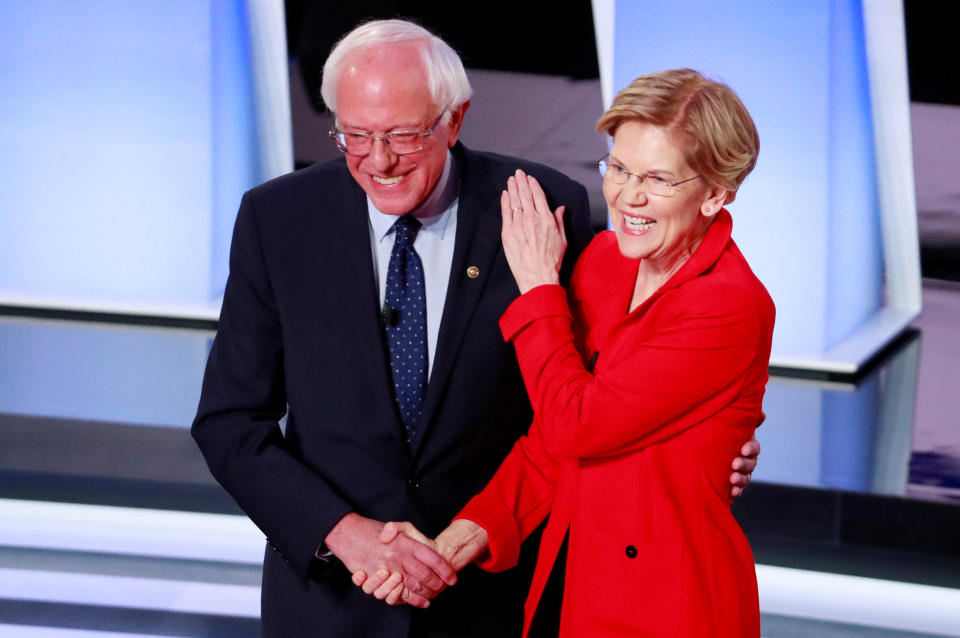A wealth tax is possible and America needs one: Kickstarter co-founder
Kickstarter co-founder and former CEO Yancey Strickler, now author of the new book ‘This Could Be Our Future: A Manifesto for a More Generous World,’ joined The Final Round on Thursday to argue for business and investment values beside ‘financial maximization,’ and a wealth tax to address economic inequality.
‘Financial value should be used to create value’
Analysis from economists Emmanuel Saez and Gabriel Zucman, who also joined The Final Round last week, found that he top 0.1% wealth share has ballooned from about 7% in the late 1970s to around 20% in recent years, while the wealth share of the bottom 90% of families has declined from about 35% in the late 1970s to about 25% today.
Strickler says this concentration in wealth can be blamed partly on an American business model informed based in ‘financial maximization’ or “the belief that the right choice in every decision is whichever option makes the most money.”
Strickler says financial maximization and values can come into conflict.
“Two weeks ago, the NBA and Hong Kong and China, as an example – we thought economic expansion into China would solve all of these ills, and instead we find a conflict between financial value and values of free speech, what we think of as American values,” says Strickler. “And that was a record-scratch moment where suddenly, I feel like for the first time, we were confronted with the fact that our new values that we are exporting conflicted with the values that we say that we believe in. And you face this choice: what do we do? What is the right path to go? We also saw that happen with Twitter, banning political advertising. Jack Dorsey putting a different type of value – kind of a civic value, above financial value...it’s making a choice to say that this optimizing for the financial outcome is not always the right choice.”
Strickler, who believes “very strongly in the importance of money, and the importance of financial value,” acknowledges that “there’s no financial upside in Kickstarter. Someone putting in twenty bucks into my short film isn’t getting part of the box-office take, if there ever is one. They’re getting a copy of what gets made.”
“The motivation behind that money being transacted is not a financial outcome, it’s a creative outcome,” he says. “Financial value should be used to create value in other sorts of ways. But right now, we’re operating in a mindset where we just want to index everything to the max in terms of financial value, or just trusting that if we make enough money, we can use that to solve every other problem. But we’re now five decades into that strategy, and we’re getting worse by the day. This is the most profitable period in American history; the most profitable country on Earth, and 43% of Americans can’t afford their bills. And this is happening during the boom time! What happens when the air goes out of the balloon? What’s going to happen then? We’re rushing towards that right now.”
Is a wealth tax the answer?

Senator Elizabeth Warren argues that a wealth tax could remedy these economic ills. A small tax on roughly 75,000 of America’s highest-earning households could, she argues, raise $2.75 trillion over a ten-year period, which would then be redistributed to fund her Medicare for All plan, public education, and universal childcare, among other proposals.
But should we be talking about a wealth tax in America, and is such a tax even realistic?
“Yes, and yes,” says Strickler. “I think that the goal should be to provide for the Maslow’s hierarchy of basic security for every American. That should be the promise of our society. If we’re not doing that, then what are we doing here? To me, those are paths to doing that. But right now, we’re in a country where 43% of Americans can’t pay their bills; when half of student debt is delinquent or in forbearance. That says to me that our structure right now is breaking down, and we’re about to wake up and find that out.”
Olivia Balsamo is a writer and producer at Yahoo Finance. Follow her on Twitter: @BalsamoOlivia.
More from Olivia:
Warren's wealth tax would solve economic inequality
Facebook is challenging our democracy
Companies shouldn't be afraid to get involved in the election process
White House ‘incompetence’ on the U.S.-China trade war is concerning investors
Read the latest financial and business news from Yahoo Finance
Follow Yahoo Finance on Twitter, Facebook, Instagram, Flipboard, LinkedIn, and reddit.

